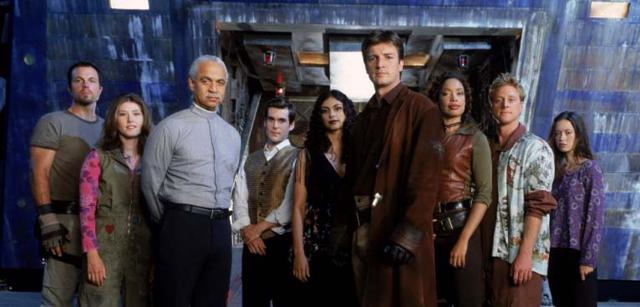Status and Signals: Why Hardcore Gamers Are Afraid Of Easy Mode

I’ve met a lot of Firefly fans. I’m one myself. Apart from enjoying the show, we all have one thing in common: we want there to be more Firefly fans. We want to share the show with others. We want more people to have the experience, to know how great it is, to laugh at the jokes and fall in love with the characters. We want more people to talk with about the show, who will know what we’re talking about and share our enthusiasm. We want more people to buy the DVDs, to cast an economic vote of “more like this!” so that maybe Joss’s next show won’t get screwed over.
It’s an inclusive fandom. We want there to be more of us. More Browncoats is better.
Now, suppose I am a Mega Man fan instead. I loved Mega Man 9, and now I hear that Mega Man 10 is going to do something no Mega Man has done before: it’s going to include an Easy Mode. This will allow Mega Man to reach a wider audience - there’s a potential here for more Mega Man fans to be created.
You might expect me to be excited for this prospect. More people to share the experience! More people to talk to about the games! More people buying them, so more get made! More gamers is better!
But apparently, there’s a good chance I’ll be pissed off.
“I’m a huge fan of the Mega Man series. I own almost every Mega Man game that was released in the west on the original format they were released on. But for some reason the inclusion of Easy Mode in Mega Man 10 seriously rubs me the wrong way. . . .
Easy Mode takes the challenge factor out of the game. ‘But Steve (that’s my name) they just included it to attract a larger audience.’ So what!? Look, the people that would have wanted to play this twenty-three year old franchise would have played it by now and those who you might attract play this installment will probably be turned away from the lack of dumbed down levels and mentally challenges enemies in the previous incarnations. Also, the inclusion of an Easy Mode might also tempt those who would be willing to overcome the challenge of the game to be swayed to a much more wussified experience."
—Steve Napierski, Mega Man 10 - Easy Peasy Lemon Squeezy
What’s going on here? Where is this coming from?

But if that were all there was to it, the fan response would be confused, perhaps, but not outright hostile. This response goes beyond, “I see no reason for them to do this; it won’t achieve their goal” all the way to “They are idiots for trying, and they are attacking my ability to enjoy the game.” Something deeper is happening here.
“Easy Mode takes the challenge factor out of the game.” This sentiment - the idea that Easy Mode must be resisted because it will somehow diminish Hard Mode - is one I’ve seen repeated over and over again. Take a look at one of the responses I received when I dared to suggest that Mirror’s Edge’s Easy Mode should be, you know, easy:
“This self-proclaimed game design expert personifies the attitude that’s ruining the business nowadays. Not every game needs to be catering to the casuals, those of us who have been around for a while and who still enjoy a challenge would like some nice new games to play as well. I loved Mirror’s Edge, in very large part BECAUSE it was challenging.
In a few years time I fear we will be stuck with only shallow, dumbed down titles, designed with only the casual non-gamer crowd in mind, much like nintendo has already started doing.
And that makes me sad."
—Comment by _jhn
Don’t want an easy game? Here’s a thought: don’t play on Easy. Why would letting Easy be Easy prevent Hard from being Hard? How can adding a legitimate Easy Mode to the game remove anything? All the challenge of Hard Mode remains completely intact - there’s just also another less-challenging mode. Giving an Easy Mode to the people who need or want it has no effect on the play experience of those who don’t use it - all it does is allow more people to enjoy the game, and more gamers is better!
When so many people are so often repeating something so obviously false, it’s worth looking under the surface to see what’s really going on.
There’s a concept in economics called “signaling.” Through various behaviors, people send signals about themselves to others. The classic example is the college diploma - with it, people signal their value as a potential employee. The diploma is a high-status signal, and gaining status is a main reason to obtain one.
Robin Hanson frequently discusses signaling on his blog, Overcoming Bias. He argues that we engage in status-seeking behavior all the time, in a wide variety of domains, though we like to claim that we don’t.
Why would we pretend status-seeking behavior isn’t status-seeking? Because to be caught actively seeking status is a low-status signal. Someone who has to try that hard to gain status must not have very much. Consequently, we should expect moves designed to gain or protect status to be given other justifications - even if they are flimsy, and obviously false upon examination.
When people talk as though the presence of a genuine Easy Mode is somehow mutually exclusive with the presence of a genuine Hard Mode, it’s a status-protecting smokescreen. The true objection to the addition of Easy Mode is that it lowers the barrier to entry and makes gamers less of an elite.
The fewer people who can lay claim to an accomplishment, the more impressive the accomplishment, and the more status it confers. Of the approximately four thousand who’ve attempted to climb Mount Everest, only 660 have succeeded, and 142 have died. Most of the bodies remain unrecovered, and it’s actually quite common to encounter human corpses on the way up. And yet—
“Old-timers and mountaineering purists bemoan the commercialisation of Everest, claiming commercial operators are destroying its mystique by dragging any Tom, Dick or fat-walleted American Harry up the hill.
‘You get hardcore mountaineers who see what is happening on Everest as awful,’ said Bierling. ‘For (those) who 30 years ago climbed Everest on their own, it must be very sad to see what’s been happening.’
What’s been happening is every year the big commercial operators ‘fix’ the mountain, running ropes that climbers can clip onto from the deadly Khumbu ice falls below, 6000 metres to the summit."
—Connie Levett, The deadly business of climbing Everest

If climbing Everest were about experiencing the awesome and humbling power of nature, the “hardcore mountaineers” would not be disappointed at this development. They would be happy that more people have the chance to share the experience more safely. But climbing Everest has never been about appreciating nature. It’s about defeating it. It’s about being able to say you did something really, really hard. And so the “old-timers,” “purists,” and “hardcore” are literally complaining about something that means climbers are less likely to die, because it diminishes the impressiveness of their own accomplishment, and thus lowers their status. It’s a lot more satisfying to just be able to say, “I climbed Everest!” without having to specify, “without pre-installed ropes and off-the-shelf Sherpas.”
With video games, the stakes are clearly much lower. But it’s the same fundamental phenomenon underneath. Someone who just loves Mega Man and wants to share the experience would be happy to see the inclusion of Easy Mode. But someone who takes significant pride in beating the Mega Man games without Easy Mode feels threatened by its inclusion. It’s a lot more satisfying to just be able to say, “I beat Mega Man!” without having to specify, “on Hard Mode.” Especially if someone might able to respond, “Big deal, my ten-year-old cousin beat that too,” not necessarily understanding that the cousin played on Easy, or why this might matter.
As far as I can tell, this is what “hardcore” really means - drawing pride and status from the activity in question. A hardcore gamer is one whose identity is partly tied up in how good they are at difficult video games - or more specifically, how much better they are than other people. Status gains, after all, can only come at the cost of a status loss for someone else. In this case, that someone else is the “casual” gamer - which, as far as I can tell, is simply a gamer who is not “hardcore” and doesn’t play for status.
Here’s another bit of feedback from my aforementioned Mirror’s Edge post:
“Um hello? its called a learning curve! maybe you should stick to: (insert failing nintendo character here)’s super fun cook shop”
—Comment by Sic

“All I’m saying is that there’s other Mega Man spinoffs: The Battle Networks, the Star Forces, the ZXs… Let one of them be the Mega Man for the weak, but leave the numbereds (and the Xs) to the purists."
—Steve Napierski, Mega Man 10 - Easy Peasy Lemon Squeezy
Acknowledging that some people need Easy Mode, but wanting it kept out of your favorites - I’m not sure how much more obvious one could make one’s status-seeking without just coming out and admitting it. Recognizing that accessibility matters, but explicitly wanting the games you enjoy most to stay inaccessible only makes sense if your enjoyment is about status. If it were about the inherent quality of the experience, it would demand to be shared, just as Firefly demands to be shared. You should want your favorite games to have a large audience, even if for no other reason than to guarantee there’s enough financial incentive for games like them to keep being made in the first place.
When they’re cut off from outsiders, fanbases shrink over time. People lose interest, or have new demands on their time or money, or eventually simply die. If no one takes their place, there will inevitably no longer be enough fans to sustain whatever it is they’re a fan of.
Mount Everest would still be there if people stopped climbing it. But the video game industry as a whole and specific franchises in particular need a critical mass of gamers, or they will collapse. Games need to continue to provide interesting challenges for the skilled players, but they also need to keep the door open for new, unskilled players.
This is common sense, but it’s more than that. This is a lesson that has come to other industries at great cost, and we should learn from their example before video games become just another cautionary tale.

“In the mid-1980s, the comic book industry was in the midst of one of its largest periods of growth, wealth, and cultural influence. . . . It was also a period of creative flexing as publishers realized the generation of loyal readers who had come on board after the industry’s 1960s rise from the ashes were now reaching adulthood and would welcome and reward more challenging, more mature-themed material. . . .
By the 90s, it seemed like every hero was breaking thumbs and every villain had become a serial psycho or a mass murderer, rather than a master crook or a world conqueror. . . . ‘Grim and gritty’ 90s content wound up being a big part and parcel of an eventual downturn. . . .
The industry grew fat and happy on the money of the older fans. . . and hardly anyone was noticing that they were leaving the next generation in the dust. . . .
In catering only to an inevitably shrinking number of older fans without seeking out new ones, the industry had [pushed itself] into an oblivion it has yet to fully recover from. . . .
Gamers, hear me loud and clear: THIS CAN HAPPEN TO US!"
—Bob Chipman, The GAME OVERTHINKER: EPISODE ELEVEN: “Can It Happen To Us?"

“Pinball skill is transferrable. If you can pass, stall, nudge, and aim on one machine you can do it on any machine. This is both a blessing and a curse for pinball developers. The blessing is that pinball players were a captive market. The curse was that to keep the pinball players interested the games had to get more and more intricate and challenging.
Pinball developers struggled with this problem as pinball was slowly losing to video games. Video games competed by adding levels of play with increasing difficulty. Any new player could quickly get chops on a new game because the low levels were easy. This ensured that new players were drawn in easily, but still they were continually challenged because the higher levels got harder and harder. By contrast, the physical nature of pinball, its main attraction to hardcore players, meant that there was no way to have it both ways.
Eventually, to keep the pinballers playing, the games became so advanced that entry-level players faced an impossible barrier. High-schoolers in 1986 were either dropouts or professionals in 1992 and without inflow of new players that year essentially marked the end of pinball."
—Jeff Ely, The Economics of Pinball
By focusing only on the older fans and locking out the young ones, comics severely wounded itself. By focusing only on the skilled players and locking out the inexperienced ones, pinball killed itself.
Video games are lucky. They can have it both ways - easier difficulties as a low barrier to entry, and harder difficulties to entertain and challenge the veteran players. This is a great advantage of video games, and it should be thoroughly embraced.
As much as some gamers might want to protect their status by locking out the new fans, this is an intensely self-defeating strategy. If video games die, no one will remember who Mega Man is, let alone care that you led him to victory.
In closing, let me make one thing absolutely clear to the hardcore gamers: I like challenge. I want to have new and difficult games. I also want you to have them. But I want them to be easy, too. I want to share the magic. Don’t you? Showing off your skill is fun, but don’t you also want to be able to show your friends how much fun they can have with you? Don’t you want to play together?
And when you’re done playing, you can watch some Firefly. Just ask any fan - we’ll be happy to loan you the DVDs.